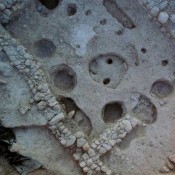The University of Manchester – Faculty of Humanities is seeking to appoint two ambitious and outstanding research associates for the project “Arabic Commentaries on the Hippocratic Aphorisms,” which will enter its third year in September. The project researches the rich and extensive corpus of Arabic commentaries on Greek medical works, analysing their content and providing digital transcriptions.
The University invites applications for the above post which is available from 1st September 2014 for a period of 29 months. Starting salary will be £29,837 to £36,661 per annum according to relevant experience.
Informal inquiries may be made to Professor Peter E. Pormann. Email: [email protected]
Applications should be made on line. If you are unable to apply on line please request an application form by emailing [email protected] quoting the reference number or by calling 0161 275 4499.
As an equal opportunities employer, the University welcomes applications from all suitably qualified persons. However, as black and minority ethnic (BME) candidates are currently under-represented at this level in this area, it would particularly welcome applications from BME applicants. All appointments will be made on merit.
Background
Classics at The University of Manchester
The University of Manchester is the largest single-site university in the UK. It has more than twenty academic schools and hundreds of specialist research groups undertaking pioneering multi-disciplinary teaching and research of world-wide significance.
ARABCOMMAPH: Arabic Commentaries on the Hippocratic Aphorisms
The Hippocratic Aphorisms have exerted a singular influence over generations of physicians both in the East and in the West. Galen (d. c. 216) produced an extensive commentary on this text, as did other medical authors writing in Greek, Latin, Arabic, and Hebrew. The Arabic tradition is particularly rich, with more than a dozen commentaries extant in over a hundred manuscripts. The present project breaks new ground by conducting an in-depth study of this tradition through a highly innovative methodology: it approaches the available evidence as a corpus, which is currently being constituted electronically, and to be analysed in an interdisciplinary way. Professor Peter E. Pormann has obtained €1.5m from the European Research Council, and he will be the project lead. The first phase of the project, which is nearing completion, focused on establishing this corpus; the second phase, to begin in the autumn of 2014, will focus on the sophisticated analysis of this corpus, notably through the use of advanced IT tools.
Job description
Overall purpose
He/she will be part of a team comprising the principle investigator, Professor Peter E Pormann; two current research associates, Drs Taro Mimura and Kamran Karimullah; three PhD students, Rosalind Batten, Samuel Barry and Elaine van Dalen; and a part-time administrator, Dr Steven Spiegl. He/she will be supervised by Professor Pormann. The post will be based in the main University campus (Samuel Alexander Building) although some research will require travel to libraries and conferences within in the UK, as well as Europe and the Middle East.
Main responsibilities
-Analysing the texts in the corpus
-Additional collation of medieval Arabic manuscripts
-Entering texts as XML into a database
-Dissemination of findings via presentations and journal articles
-Assisting in the organisation of conferences and workshops.
-There will also be an opportunity to input into other grant proposals.
Person specification
Essential
-Educated to degree level or equivalent (2:1 or above) in Arabic.
-Doctorate on a topic related to the project.
-Previous research experience involving medieval Arabic manuscripts.
-Ability to transcribe medieval Arabic manuscripts from a wide variety of origins and scripts (eg, nasḫ, maġirībī, nasta‘līq).
-Familiarity with standard IT packages and willingness to work with Macs and Mellel.
-Have excellent interpersonal and communication skills (oral and written).
-Ability to prioritise and manage own workload and work to deadlines.
-Ability to self-motivate and work independently.
-Ability to work collaboratively as part of a team.
-Willingness to travel occasionally within the UK, Europe and the Middle East.
-Willingness to undertake further training.
Desirable
-Knowledge of classical Greek and/or Syriac.
-Previous experience in the area of the history of medicine.
-Knowledge of the methods and techniques of corpus linguistics and/or translation studies.
-Familiarity with exegetical cultures in Arabic.
-Previous experience of travel in the Middle East
Closing date: 24/07/2014





